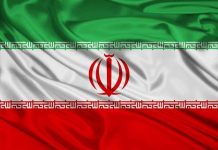DM Monitoring
ANKARA: The Turkish Republic of Northern Cyprus (TRNC) is ready to attend the United Nations-led talks in Geneva this week as President Ersin Tatar highlighted their determined position on a two-state solution while expressing his confidence in Turkey’s support.Tatar answered an Anadolu Agency (AA) correspondent’s questions before the U.N.-led conference on Cyprus, which will be held on April 27-29 with the participation of the Cypriot parties and the guarantor powers Turkey, Greece and the United Kingdom within the scope of the informal 5+1 format.
Noting that after his election as the president of Turkish Cyprus, Tatar said that the Turkish side has put forward its new policy on the Cyprus issue with peace of mind and that there is no longer hope for a federal agreement in Cyprus.
Four years after their last peace talks failed, rival Greek Cypriot and Turkish Cypriot leaders will meet in Geneva next week to explore elusive “common ground” on the divided Mediterranean island.
Tatar reiterated that Cyprus negotiations have been held since 1968 and after the agreement between the founding president of Turkish Cyprus, Rauf Denktaş, and Archbishop Makarios in 1977 to achieve a solution on a federal basis, the Greek side rejected eight separate plans, while the Turkish side accepted them all.
Recalling that the Turks also said “yes” in the referendum for the Annan Plan in 2004 and the Greeks said “no,” Tatar expressed: “In 2017, the Turks in Crans Montana were open to dialogue and the table was turned after the abandonment of talks by Greek leader Nikos Anastasiadis. Afterward, the Turks assessed the situation, concluding, ‘Now there is no hope for an agreement on a federal basis. Now a new path will probably be taken.’ The same assessment was also made by Turkish Foreign Minister Mevlüt Çavuşoğlu, and former Turkish Cypriot leader Mustafa Akıncı who were also present.”
“Neither Cyprus is the old Cyprus, nor is the Eastern Mediterranean the old Eastern Mediterranean,” Tatar said and added Turkey’s regional policies evolve in accordance with the developments in the Eastern Mediterranean.




